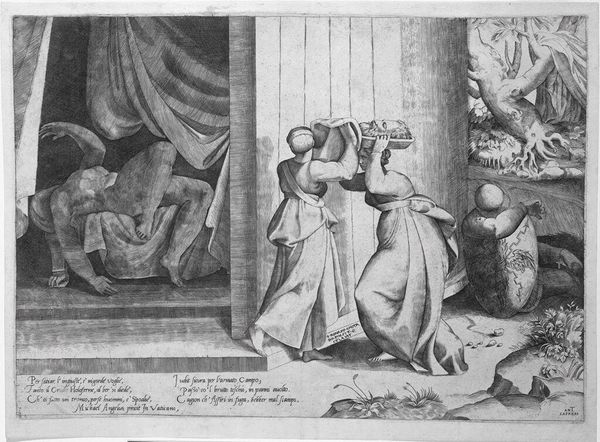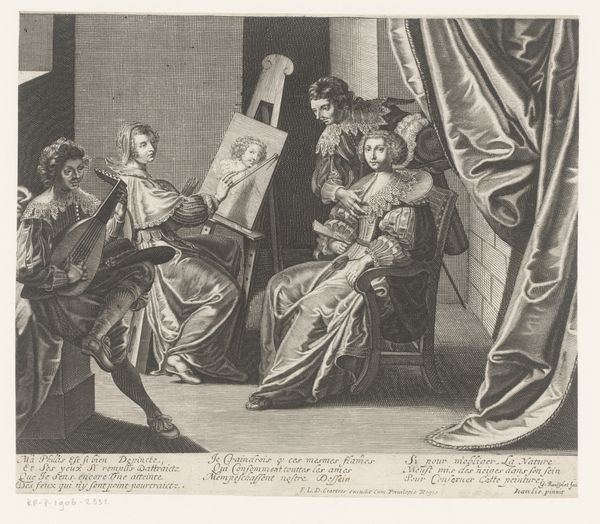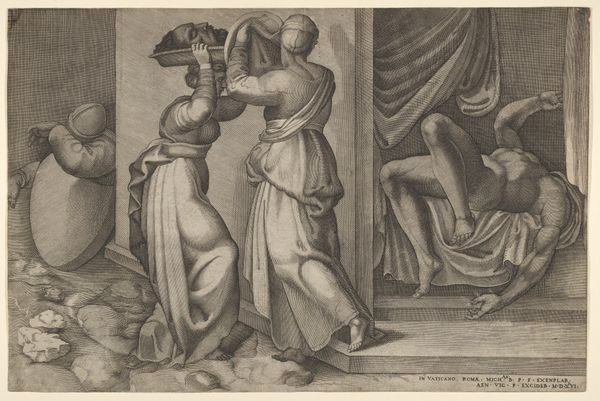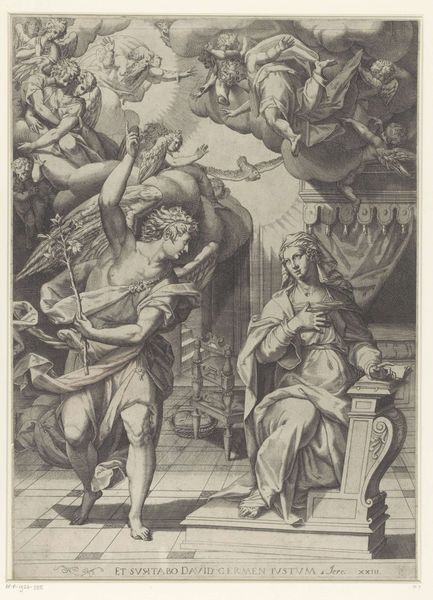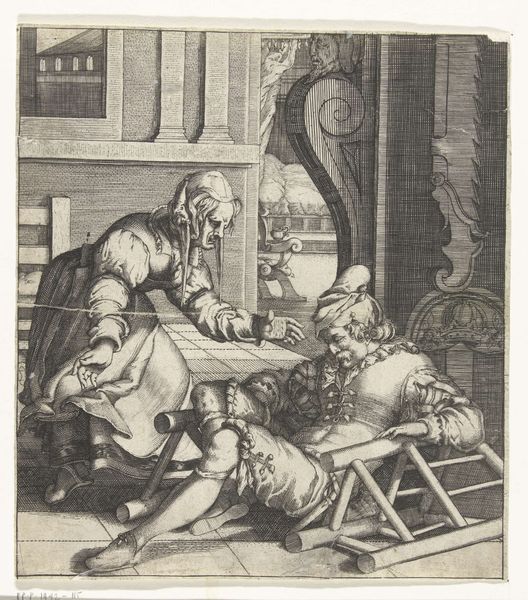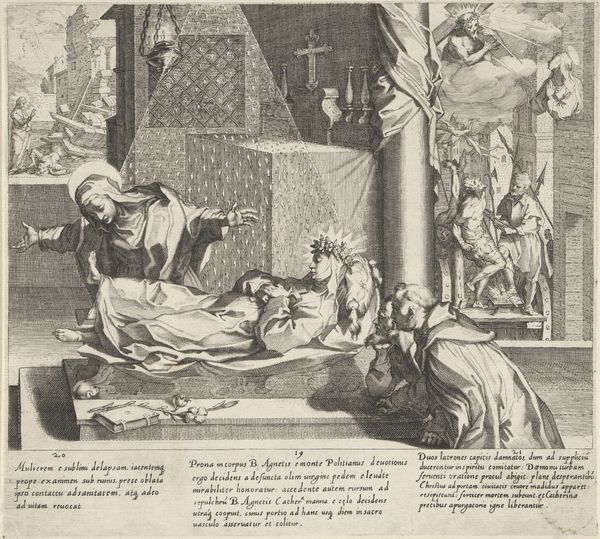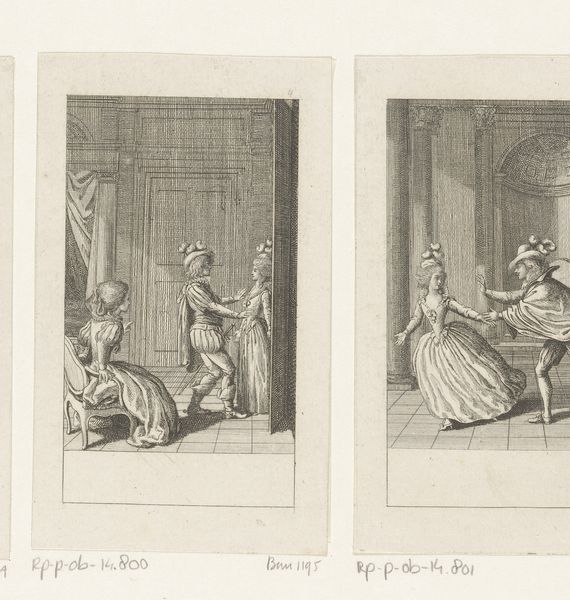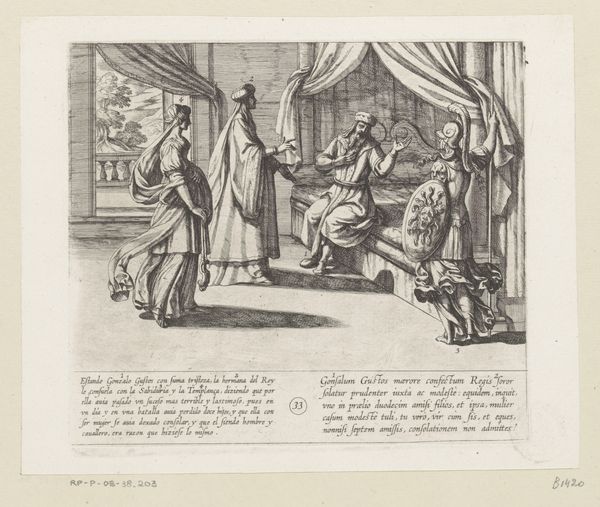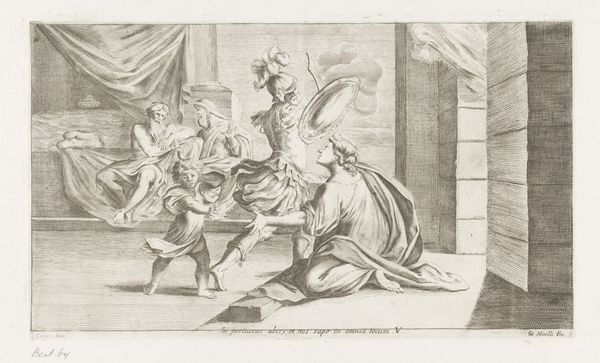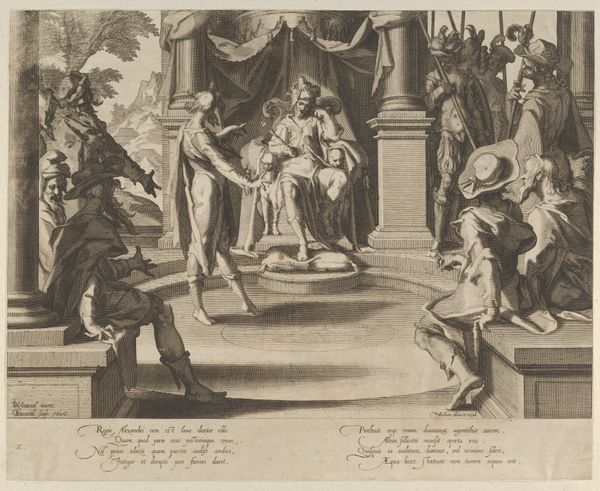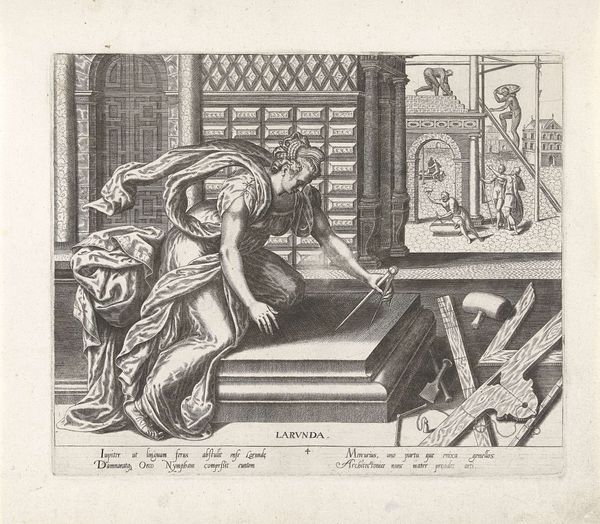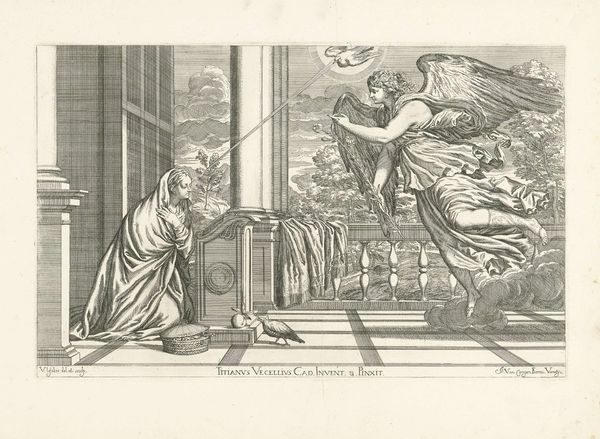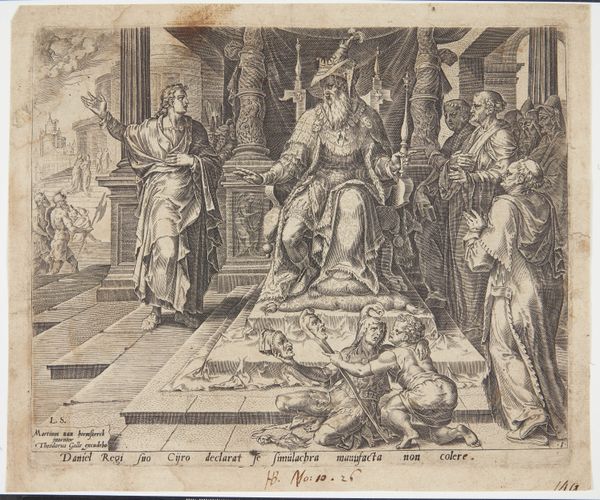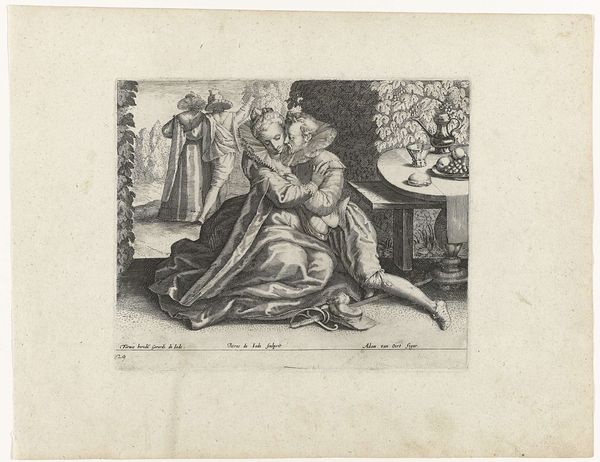
Judith passing the head of Holofernes to her maidservant, the decapitated Holofernes inside the tent at left 1531 - 1576
0:00
0:00
drawing, print, engraving
#
drawing
#
narrative-art
# print
#
mannerism
#
figuration
#
history-painting
#
italian-renaissance
#
engraving
Dimensions: Sheet: 12 3/8 x 17 5/8 in. (31.5 x 44.8 cm)
Copyright: Public Domain
Giulio Bonasone created this print, "Judith passing the head of Holofernes to her maidservant", in the 16th century. The story of Judith, a righteous widow who seduces and then beheads the Assyrian general Holofernes to save her city, has been depicted in art for centuries. Bonasone illustrates the moment of transition, when Judith and her maidservant escape with Holofernes' head. What does it mean that this narrative, taken from the apocryphal Book of Judith, has been so compelling? Throughout history, Judith has been a figure of female power and resistance. And yet, we must also acknowledge that such a story emerges from a patriarchal culture grappling with the complexities of female agency. Is Judith a heroine, or is she a cautionary tale? Here, Bonasone’s Judith embodies both piety and defiance. The print invites us to consider the nuanced ways in which women navigate circumstances of conflict and oppression, questioning traditional narratives of power, resistance, and survival.
Comments
No comments
Be the first to comment and join the conversation on the ultimate creative platform.
